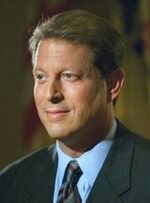Philosophy major: To get to the other side.
Adam Smith: The comparative advantage of chickens lies in crossing roads.
John Kerry: The chicken crossed because this President was fighting the wrong war, at the wrong place, at the wrong time.
Steve Bracks: The impact of the chicken’s road-crossing on the state's finances meant the Government had to make a difficult decision. The decision to fund the road by a toll was not made lightly, but it is the responsible decision for the future.
John Howard: In a world where chickens cross roads, who do you trust to manage the economy and keep interest rates low?
Lee Kuan Yew: The chicken’s behaviour illustrates the moral breakdown of western society.
John Stuart Mill: So long as the chicken’s action does not harm others, it is at liberty to cross roads.
Michel Foucault: This was the chicken’s journey of self-actualisation, an act of mapping its own external reality in resistance to the hidden normative. By crossing the road the chicken shows how power is socially constructed, bottom-up and inherently diffuse.
Ralph Nader: Our two-party system left the chicken no other choice.
Dan Rather: After extensive additional interviews, I no longer have the confidence in the fact of this chicken crossing the road that would allow us to continue vouching for it journalistically.
Deng Xiaoping: Black chicken, white chicken – if it crosses the road it’s a good chicken.
Thucydides: What made the crossing inevitable was the growth of the farmer’s power and the fear which this caused in the chicken.
Noam Chomsky: The chicken’s action is another step in the expansion of the
Rush Limbaugh: I mean, before we even get a proper report about this chicken, naturally
Franklin Graham: I believe that road-crossing is a very evil and wicked religion. I don’t believe chickens are evil because they cross roads – I personally have many friends who are chickens – but I decry the evil that has been done in the name of road-crossing.
Osama bin Laden: It is a sacred duty of all Muslims to kill chickens that cross roads.
Thomas Hobbes: Because life for chickens is nasty, brutish and short.
Mark Latham: Chickens cross roads because they don’t have a ladder of opportunity. There are two types of chicken on this road, slackers and hard workers, and we need to ease the squeeze on them and practice democracy in the raw.
Pentagon spokesman: We can neither confirm nor deny that a chicken crossed the road.
Donald Rumsfeld (1): It’s a misunderstanding to see that image over and over, of a chicken crossing the road, and say ‘You didn’t have a plan’. Freedom’s untidy, and that chicken is free to make mistakes and cross roads.
Donald Rumsfeld (2): The Army leadership is sensitive to the fact that not every road is as clear of chickens as would be desirable, but you go to war with the Army you have. It’s essentially a matter of physics.
Lenin: Any act of the chicken was justified, if it advances the revolution.
Homer Simpson: Mmmmm, chicken.
Chinese Communist: This chicken was clearly taking the capitalist road, as part of a hypocritical imperialist effort to split the sovereign Chinese nation. The Chinese People will never bow to such blatant aggression but will resolutely pursue the Four Modernisations along the scientific materalist path of socialist spiritual civilisation, adhering steadfastly to the Four Cardinal Principles and the Five Principles of Peaceful Coexistence while fortifying their minds with the unshakeable dictates of Marxist-Leninist-MaoZedong Thought!
Team
